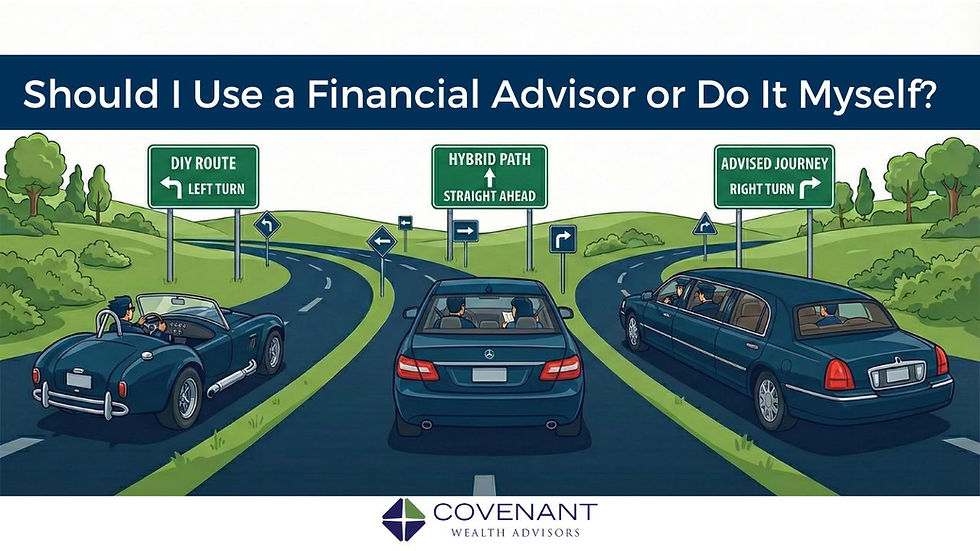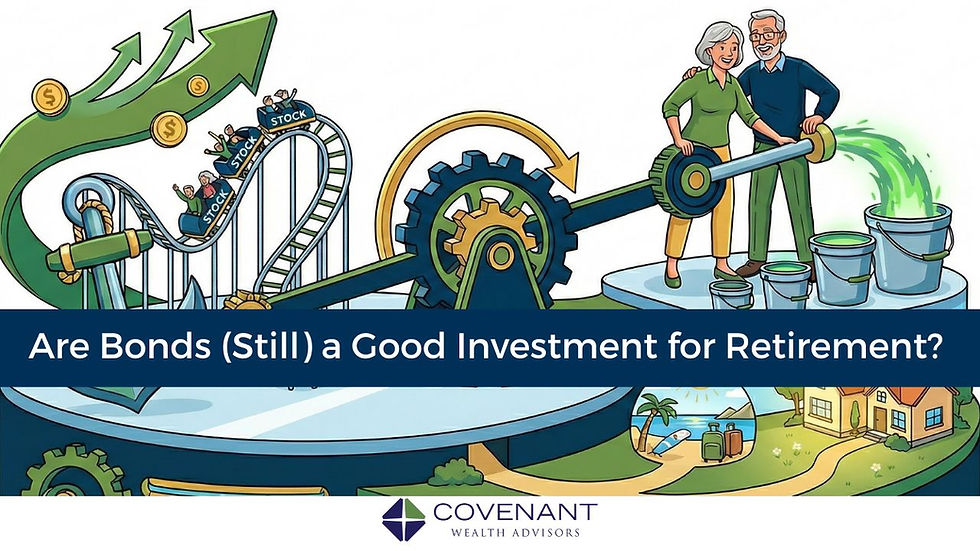Stock Market Volatility in 2018 and Your Portfolio
- Mark Fonville, CFP®

- Nov 9, 2018
- 3 min read
Updated: Nov 1, 2023
U.S. stocks have been rising ever since the Great Recession ended.
Along the way, there have been multiple times when companies have suffered bouts of decreased prices. We just experienced one of the bouts of volatility in October when the U.S. stock market declined approximately 10% from a recent high.
Many pundits have been quick to assign blame to rising interest rates, the lengthening trade negotiations, the weakening impact of tax stimulus, and even mid-term elections, and, in some cases, all of the above! The truth is that we don’t know, and we likely will never know, what caused stock prices to fall.
What we do know is that stock market price swings are normal and expected.
In fact, since 1945 to September 2018, there has been 55 times that the stock market has declined by 10% or more! That means investors are faced with a decline of 10% or more every 16 to 17 months.
We also know that investors are typically rewarded for tolerating market uncertainty. So, the ups and downs we experience from time to time is the price we pay for the returns we have received, and expect to receive, from our stock investments.
A quick example will help make this point.
Over the past 20 years ending September 30, 2018, the return on safe 30-day Treasury bills was an annualized 1.8%, but the return on S&P 500 Index was an annualized 7.4%. In dollar terms, $1 invested on October 1, 1998, would have grown to $1.42 in short-term U.S. Treasury Bills, while that same dollar would have doubled more than twice to $4.19 if invested in stocks.
It absolutely was a rocky ride for stocks over the past 20 years (recall that we experienced two major bear markets), but investors were rewarded for being willing to ride through many market ups and downs.
Given that stock prices do swing and that they don’t move in a straight-line, we diversify our investments among multiple asset classes. We continue to be invested in large and small companies, non-U.S. stocks from developing and emerging countries, real estate, and bonds. While we don’t expect all of these investments to deliver diversification benefits at the same time, we feel we use enough to have one or two of them provide some benefit.
Depending on your asset allocation, you may have a portion of your investments in short-term, high-quality bonds. Short-term bonds are not as sensitive to the rising interests we see in the market and they are now offering a much better yield than they were just three years ago. These investments can help provide stability when our stocks are volatile.
While market volatility makes some investors nervous, we take comfort in knowing that we’ve seen this before and that we’ve historically been rewards for staying the course.
Given this, we don’t foresee the need to make any changes to our approach at this time, unless your tolerance for risk has changed.
If you have any questions, please feel free to reach out.

Mark Fonville, CFP®
Mark has over 18 years of experience helping individuals and families invest and plan for retirement. He is a CERTIFIED FINANCIAL PLANNER™ and President of Covenant Wealth Advisors.
Disclosure: All expressions of opinion are subject to change. This information is intended for educational purposes, and it is not to be construed as an offer, solicitation, recommendation, or endorsement of any particular security, products, or services.Diversification does not eliminate the risk of market loss. Investment risks include loss of principal and fluctuating value. There is no guarantee an investing strategy will be successful.Past performance is not a guarantee of future results. Indices are not available for direct investment; therefore, their performance does not reflect the expenses associated with the management of an actual portfolio.
Registration of an investment advisor does not imply a certain level of skill or training.



